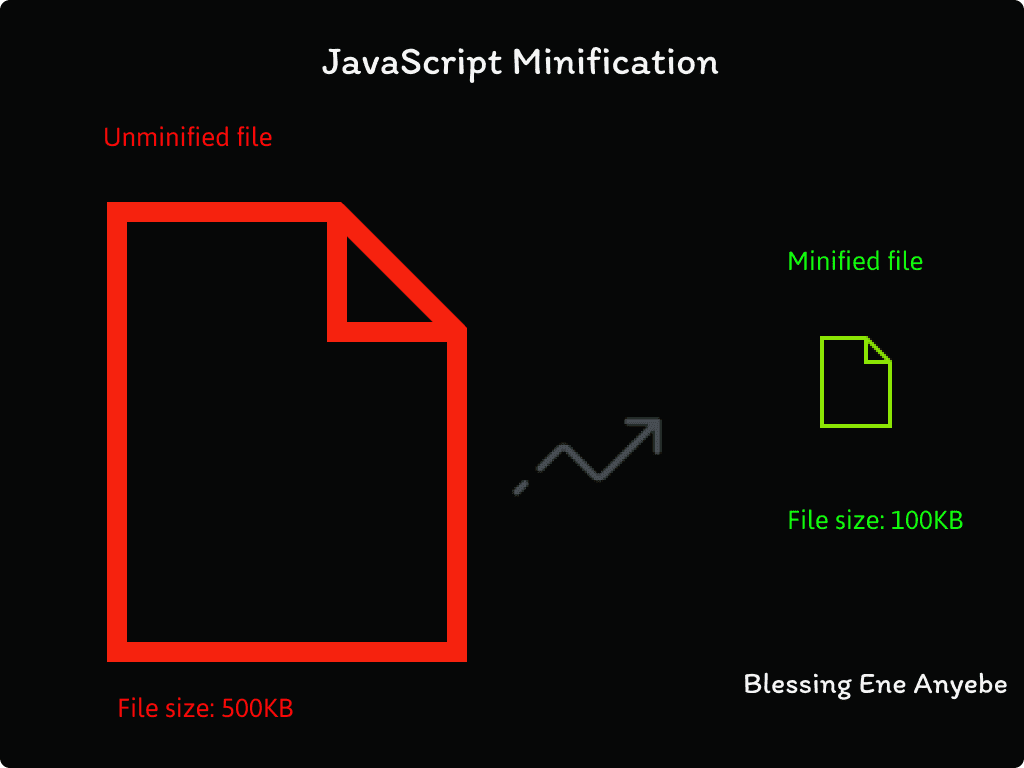This text will discover sensible JavaScript file optimization strategies, easy methods to cope with efficiency points associated to JavaScript information, and instruments to assist the optimization course of. You’ll achieve the data to spice up your internet software velocity and supply a seamless expertise to your customers.
JavaScript information are very important points of the online software course of, however web site velocity and person expertise are essential to a web site’s success. So it’s essential to optimize JavaScript information to make sure seamless efficiency. Optimizing JavaScript information resolves the problem of render blocking, web page load time, giant file dimension, and so forth.
Understanding JavaScript Optimization
JavaScript optimization is the method of bettering the efficiency of JavaScript. To know the advantages of JavaScript optimization, we first have to grasp the problems related to JavaScript. Some embrace:
-
Script execution. JavaScript information containing blocking code delay web page rendering. Script execution prevents different content material from loading, leading to a poor person expertise.
-
Massive file dimension. Massive JavaScript information take longer to obtain, impacting web page load instances.
-
Code complexity and inefficiencies. Poorly optimized JavaScript code — similar to extreme loops, redundant calculations, or inefficient algorithms — results in efficiency blocks.
The advantages of optimizing JavaScript information are quite a few. JavaScript optimization helps enhance the responsiveness and interactivity of internet purposes, delivering a extra satisfying person expertise and higher efficiency. It consists of sooner kind submissions, dynamic content material updates, and clean animations.
By serving to to scale back the dimensions of JavaScript information and optimize their supply, web page load instances are sooner. Sluggish-loading pages end in increased bounce charges and negatively influence person expertise, whereas diminished friction will increase the chance of conversions.
Engines like google contemplate web page load instances as a rating issue. Optimizing JavaScript information improves web site efficiency, thus bettering search engine rankings.
Strategies for JavaScript Optimization
Let’s have a look at sensible steps to optimize our JavaScript information.
Minification
Minifying JavaScript information entails eradicating pointless characters, whitespace, and feedback to scale back the file dimension. It helps to enhance load instances by decreasing the quantity of information that wants transferring from the server to the shopper browser.
Compression
Compressing JavaScript information — utilizing strategies like gzip compression — reduces file sizes. The compressed information are despatched from the server to the browser and decompressed for execution, leading to sooner downloads and improved web site efficiency.
For extra info on JavaScript compression, take a look at these sources:
Asynchronous and deferred loading
JavaScript information load synchronously by default, which means they block the rendering of the online web page till the script totally masses and executes. Asynchronous and deferred loading strategies permit JavaScript information to load independently of the web page rendering course of, minimizing the influence on load instances. Asynchronous loading ensures that the script is loaded and executed as quickly because it’s out there, whereas deferred loading delays the execution till the HTML parsing is full.
For extra info on asynchronous and deferred loading, take a look at these sources:
Enhancing Load Efficiency
We’ll now contemplate some methods to enhance web page load efficiency.
Conditional and lazy loading
Lazy loading is a method the place JavaScript information load solely when wanted, like when a particular motion or occasion happens on the internet web page. It reduces the preliminary web page load time by deferring the loading of non-critical scripts till required, enhancing the whole person expertise.
Conditional loading permits you to load JavaScript information selectively primarily based on particular circumstances. For instance, you may load completely different scripts primarily based on the person machine kind, browser capabilities, or person interactions. Loading solely the mandatory scripts reduces the payload and improves efficiency.
Dependency administration and script concatenation
Managing dependencies between JavaScript information is essential for environment friendly loading. Script concatenation entails combining a number of JavaScript information to a single file, decreasing the variety of HTTP requests wanted to load the scripts. This merge minimizes community latency and will increase load instances.
Tree shaking
Tree shaking is usually used with module bundlers like Webpack. It eliminates unused code from JavaScript modules through the construct course of, decreasing the file dimension and enhancing efficiency. Tree shaking helps optimize the supply of solely the mandatory code to the online browser.
Caching and content material supply networks (CDNs)
Leveraging browser caching and using CDNs can enhance JavaScript file loading instances. Caching permits the browser to retailer and reuse beforehand loaded JavaScript information, decreasing the necessity for repeated downloads. CDNs retailer JavaScript information in a number of areas worldwide, enabling sooner supply to customers by serving the information from a server nearer to their geographical location.
Code group and modularization
For higher performance, cut up your JavaScript code into modular parts or modules. Use bundlers to mix and optimize the code right into a single bundle. Apply a modular design sample (ES modules) to make sure higher code group and maintainability.
Efficiency monitoring and testing
Interact efficiency monitoring instruments (similar to Lighthouse and WebPageTest) to investigate JavaScript efficiency and establish areas for enchancment. Usually take a look at your web site load instances and responsiveness underneath varied machine varieties and community circumstances.
Common updates and optimization evaluations
Keep up to date with the newest finest practices and developments in JavaScript optimization procedures. Assessment and optimize your JavaScript codebase to take away redundancies, enhance efficiency, and guarantee compatibility with new browser options and requirements.
Leveraging (Plain) JavaScript for Optimization
Leveraging plain JavaScript can result in environment friendly optimization with out counting on exterior instruments or libraries like React, Vue, and Angular. Listed below are some sensible methods to optimize your JavaScript code.
Environment friendly loops and iterations
Keep away from pointless work inside loops and use strategies like map, filter, and scale back for array manipulations.
Suppose you’ve got an array of numbers and need to sq. every quantity:
const numbers = [1, 2, 3, 4, 5];
const squaredNumbers = [];
for (let i = 0; i < numbers.size; i++) {
squaredNumbers.push(numbers[i] * numbers[i]);
}
console.log(squaredNumbers);
Now, let’s optimize this loop utilizing the map methodology:
const numbers = [1, 2, 3, 4, 5];
const squaredNumbers = numbers.map(quantity => quantity * quantity);
console.log(squaredNumbers);
On this instance, the map methodology creates a brand new array referred to as squaredNumbers. The map methodology iterates over every factor within the numbers array, applies the supplied callback operate (on this case, squaring the quantity), and returns a brand new array with the reworked values.
The optimized method with map is extra concise and simpler to learn and keep. It advantages from efficiency optimizations utilizing built-in array strategies like maps.
Debouncing and throttling
When dealing with occasions that set off frequent JavaScript executions (similar to window resizing or scrolling), implement debouncing or throttling to regulate the speed of operate calls and scale back pointless processing.
Right here’s a debouncing instance:
operate debounce(func, delay) {
let timeout;
return (...args) => {
clearTimeout(timeout);
timeout = setTimeout(() => func(...args), delay);
};
}
const handleResize = () => {
};
window.addEventListener('resize', debounce(handleResize, 300));
Use environment friendly information buildings
Select applicable information buildings on your software. For instance, use Map or Set when quick information retrieval or uniqueness is required.
Right here’s an instance of utilizing Set:
const uniqueValues = new Set();
uniqueValues.add(1);
uniqueValues.add(2);
uniqueValues.add(1);
console.log([...uniqueValues]);
Use textContent as an alternative of innerHTML
When updating the content material of a component, use the textContent property over innerHTML to keep away from potential safety dangers and enhance efficiency.
Right here’s an instance of utilizing textContent:
const factor = doc.getElementById('myElement');
factor.innerHTML = '<robust>Up to date content material</robust>';
const factor = doc.getElementById('myElement');
factor.textContent = 'Up to date content material';
Environment friendly error dealing with
Correct error dealing with is essential for sustaining software stability. Nonetheless, keep away from overusing attempt–catch blocks, as they’ll influence efficiency. Use them solely when obligatory, with doubtlessly failing code.
Let’s have a look at an instance of environment friendly error dealing with. Suppose you’ve got a operate that parses JSON information. You need to deal with errors that may happen through the JSON parsing course of:
operate parseJson(jsonString) {
attempt {
const parsedData = JSON.parse(jsonString);
return parsedData;
} catch (error) {
console.error('Error parsing JSON:', error.message);
return null;
}
}
const validJson = '{"title": "John", "age": 30}';
const invalidJson = 'invalid-json';
const validResult = parseJson(validJson);
console.log(validResult);
const invalidResult = parseJson(invalidJson);
console.log(invalidResult);
On this instance, the parseJson() makes an attempt to parse a JSON string utilizing JSON.parse(). If the parsing is profitable, it returns the parsed information. Nonetheless, if an error happens (for instance, resulting from invalid JSON syntax), the catch block catches the error and logs an applicable error message. The operate then returns null.
Through the use of the attempt–catch block on this means, you deal with potential errors with out negatively impacting efficiency. This method ensures you correctly catch and handle errors whereas solely making use of the error dealing with logic when obligatory.
Environment friendly occasion dealing with
Use occasion delegation to attenuate the variety of occasion listeners connected to particular person parts. That is helpful when coping with a number of parts of the identical kind.
Right here’s an instance of occasion delegation:
const buttons = doc.querySelectorAll('.button');
buttons.forEach(button => {
button.addEventListener('click on', handleClick);
});
doc.addEventListener('click on', occasion => {
if (occasion.goal.classList.accommodates('button')) {
handleClick(occasion);
}
});
Scale back/keep away from international variables
Reduce using international variables to stop namespace air pollution and potential conflicts. As a substitute, use module patterns or closures to encapsulate performance.
Right here’s an instance of utilizing a closure:
const counter = (operate () {
let depend = 0;
return {
increment: operate () {
depend++;
},
getCount: operate () {
return depend;
},
};
})();
counter.increment();
console.log(counter.getCount());
DOM fragment for batch updates
When making a number of adjustments to the DOM, create a DocumentFragment to batch these adjustments earlier than appending to the precise DOM. It reduces reflows and enhances efficiency.
Right here’s an instance of utilizing a DocumentFragment:
const fragment = doc.createDocumentFragment();
for (let i = 0; i < 1000; i++) {
const factor = doc.createElement('div');
factor.textContent = `Merchandise ${i}`;
fragment.appendChild(factor);
}
doc.getElementById('container').appendChild(fragment);
Environment friendly string concatenation
Use template literals for environment friendly string concatenation, as they supply higher readability and efficiency, not like conventional string concatenation strategies.
Right here’s an instance of utilizing template literals:
const title = 'John';
const age = 30;
const message = `My title is ${title} and I'm ${age} years outdated.`;
Caching costly calculations
Cache the outcomes of high-priced calculations or operate calls to keep away from redundant processing.
Right here’s an instance of caching calculations:
const cache = {};
operate expensiveCalculation(enter) {
if (cache[input]) {
return cache[input];
}
const outcome = performExpensiveCalculation(enter);
cache[input] = outcome;
return outcome;
}
operate performExpensiveCalculation(enter) {
let outcome = 1;
for (let i = 1; i <= enter; i++) {
outcome *= i;
}
return outcome;
}
console.log(expensiveCalculation(5));
console.log(expensiveCalculation(7));
console.log(expensiveCalculation(5));
On this instance, the expensiveCalculation() checks whether or not the outcome for a given enter is already current within the cache object. If discovered, it returns instantly. In any other case, the costly calculation masses utilizing the performExpensiveCalculation(), and the outcome will get saved within the cache earlier than being returned.
These instruments provide varied options and functionalities to streamline the optimization course of, and enhance web site efficiency.
Webpack
Webpack is a strong module bundler that helps with dependency administration and affords optimization options. With Webpack, you may bundle and concatenate JavaScript information, optimize file dimension, and apply superior optimizations like tree shaking and code splitting. It additionally helps integrating different optimization instruments and plugins into the construct course of.
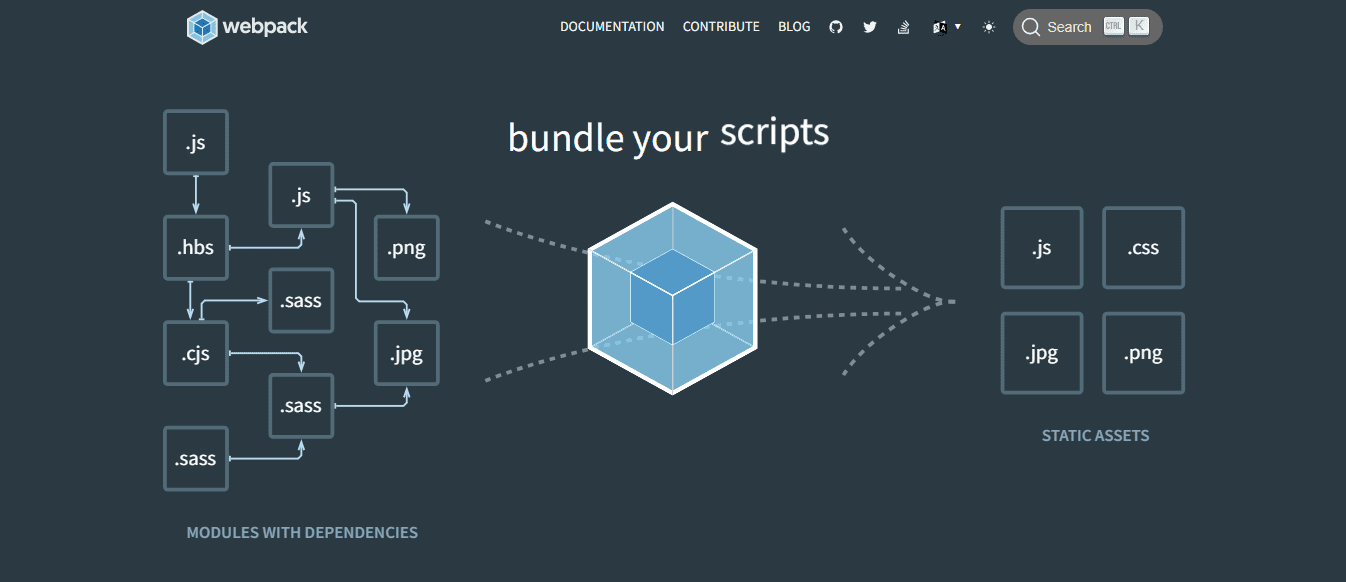
CodeSee
CodeSee is a really great tool for JavaScript file optimization. It supplies insights into codebases, facilitates code exploration, and aids the identification of optimization alternatives. You are able to do issues like visualize code dependencies, analyze code complexity, navigate your codebase, perform time journey debugging, carry out collaborative code assessment, keep code, and generate documentation on your code.

UglifyJS
UglifyJS is a JavaScript minification device. It removes pointless characters, renames variables, and performs different optimizations to scale back file dimension. It helps ECMAScript 5 and superior variations, making it appropriate with trendy JavaScript code.
Babel
Babel is a flexible JavaScript compiler that enables builders to write down code utilizing the newest JavaScript options and syntax whereas making certain compatibility with older browsers. Babel transpiles trendy JavaScript code into backward-compatible variations, optimizing the code for broader browser assist.
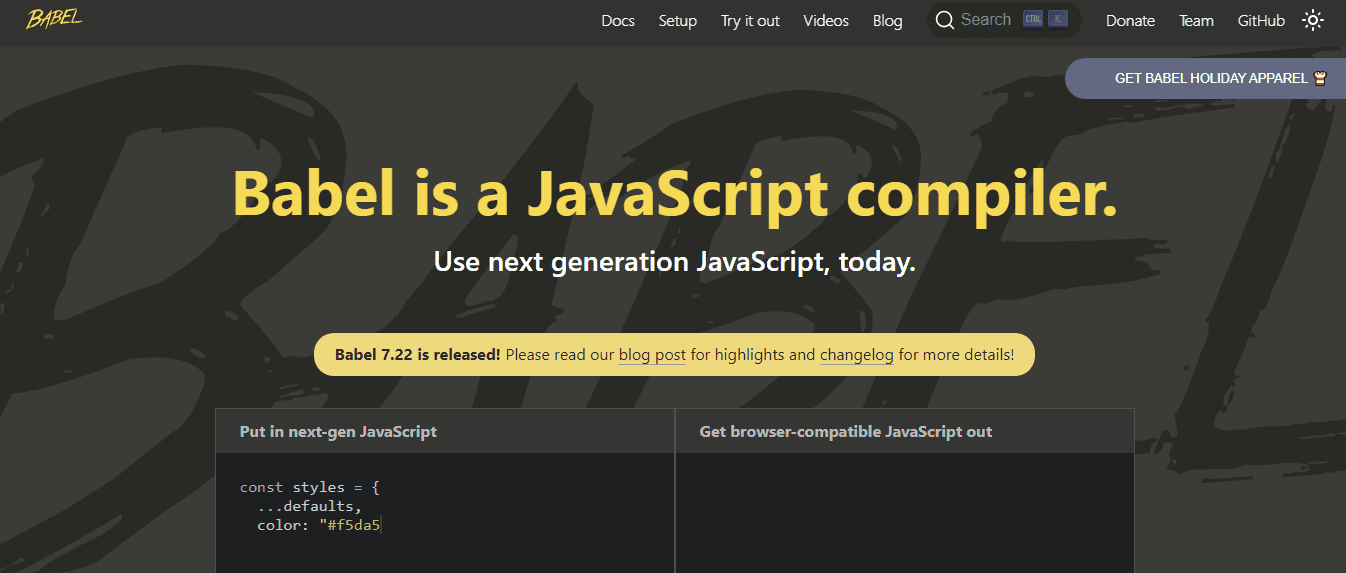
Grunt
Grunt is a process runner that automates repetitive duties in JavaScript tasks, together with JavaScript optimization. It supplies many plugins and configurations for minifying, concatenating, and compressing JavaScript information. Grunt simplifies the optimization workflow and may be personalized to go well with particular undertaking necessities.

Gulp
Gulp is one other accepted process runner that streamlines the construct course of, together with JavaScript optimization. It makes use of a code-over-configuration method and affords an unlimited ecosystem of plugins. Gulp permits builders to outline customized duties for minification, concatenation, and different optimization strategies.
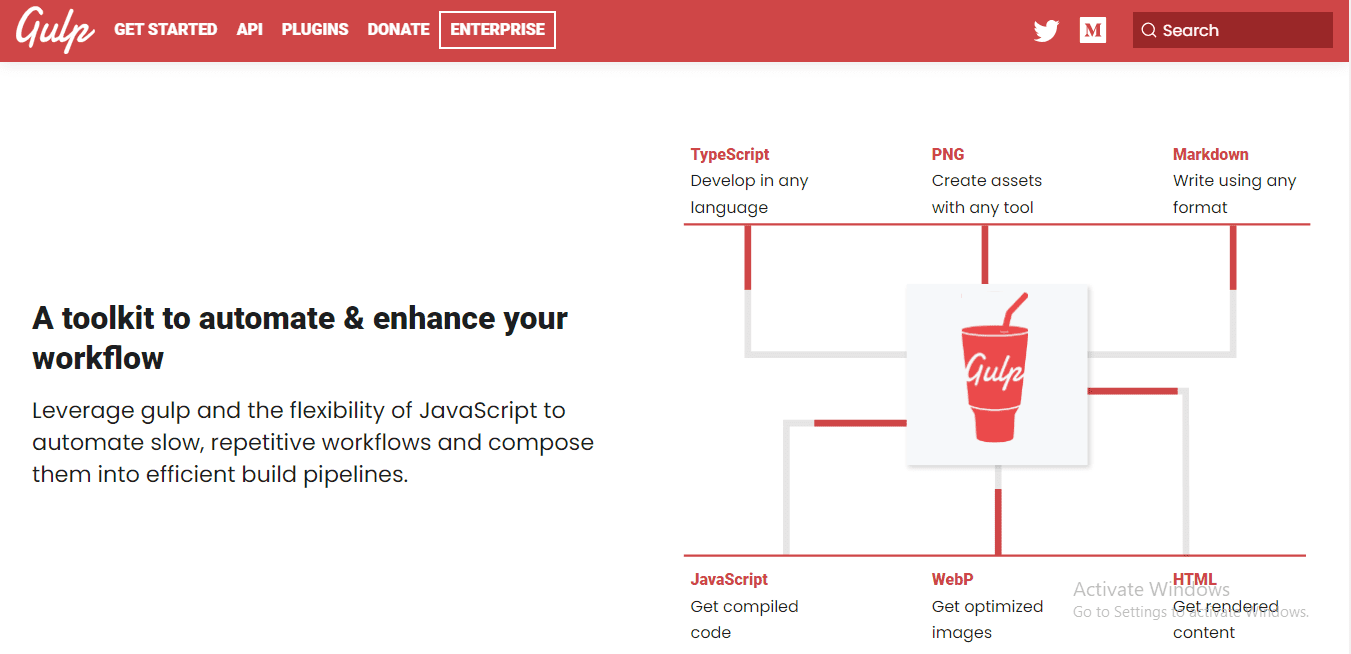
Rollup
Rollup is a module bundler designed for contemporary JavaScript tasks. It focuses on creating optimized bundles by leveraging tree shaking and code splitting. Rollup helps eradicate useless code and produce smaller, extra environment friendly JavaScript information.

The Closure Compiler
The Closure Compiler is a JavaScript optimization device developed by Google. It analyzes and minifies JavaScript code, performs superior optimizations, and supplies static evaluation to optimize runtime efficiency. The Closure Compiler is useful for large-scale tasks and purposes.
WP Rocket
WP Rocket is a well-liked WordPress caching plugin that provides built-in optimization options for JavaScript information. It will possibly minify and concatenate JavaScript information, combine with CDNs, and supply superior caching choices to enhance web site efficiency.
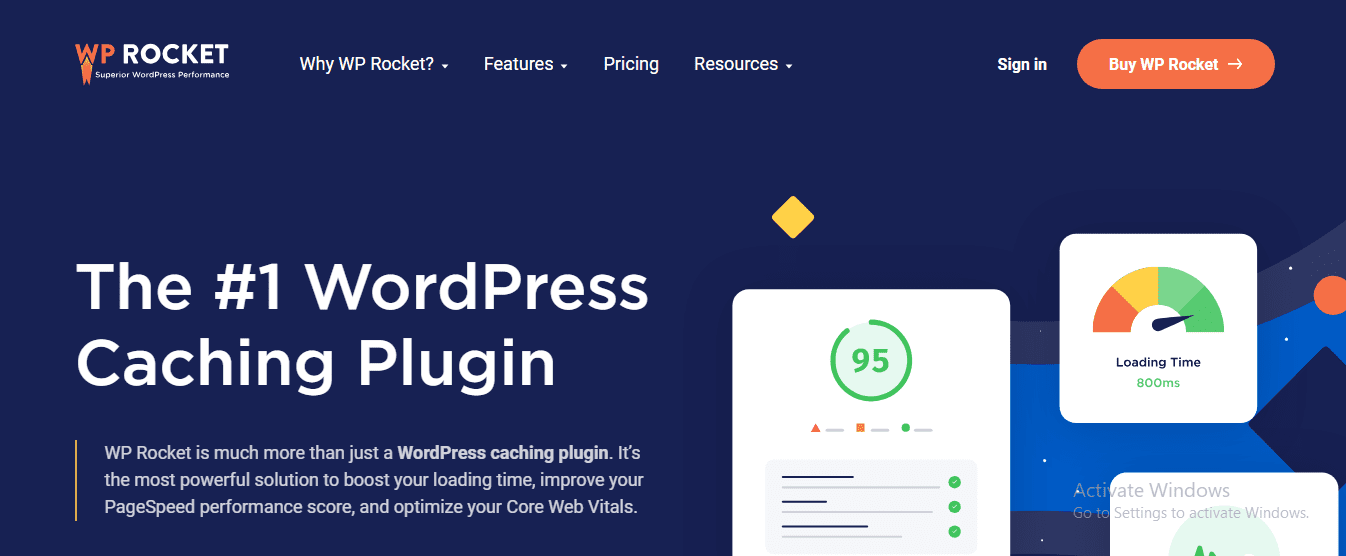
ESLint
ESLint, whereas not an optimization device, is a strong linter for JavaScript that helps implement code high quality and establish potential efficiency points. It will possibly detect and flag problematic patterns or inefficient code practices that would influence the efficiency of JavaScript information.
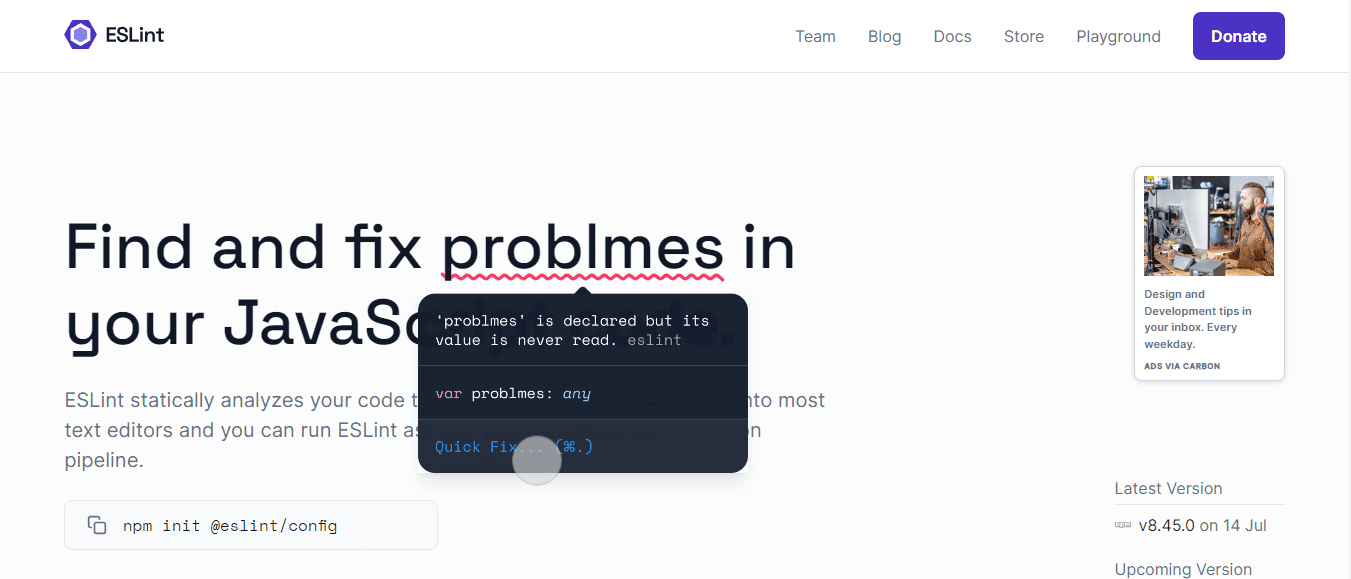
Lighthouse
Lighthouse is an open-source device from Google that audits internet pages for efficiency, accessibility, and finest practices. It supplies solutions and proposals for optimizing JavaScript code, together with decreasing file sizes, eliminating render-blocking scripts, and leveraging caching.
Wrapping Up
JavaScript file optimization is critical for bettering efficiency, offering a extra responsive and interactive person expertise, bettering search engine rankings, decreasing web page load instances, and growing conversion charges of internet purposes.
Addressing points like script execution delays, giant file sizes, render-blocking scripts, and code complexity helps the JavaScript optimization course of. You could use varied strategies for JavaScript optimization, together with minification, compression, asynchronous/deferred loading, conditional/lazy loading, dependency administration, script concatenation, tree shaking, caching, and CDNs.
Utilizing plain JavaScript strategies empowers you to optimize your codebase with out counting on exterior libraries. You obtain higher efficiency and a smoother person expertise in your internet purposes.
A number of instruments similar to Webpack, CodeSee, UglifyJS, Babel, Grunt, Gulp, Rollup, Closure Compiler, WP Rocket, ESLint, and Lighthouse successfully streamline the JavaScript optimization course of, automate duties, and enhance web site efficiency.
To make sure steady enchancment, keep up to date with the newest finest practices, repeatedly assessment and optimize JavaScript codebases, and make the most of efficiency monitoring instruments to establish areas for enchancment. By prioritizing JavaScript file optimization, you ship sooner, extra environment friendly internet purposes offering a seamless person expertise.

